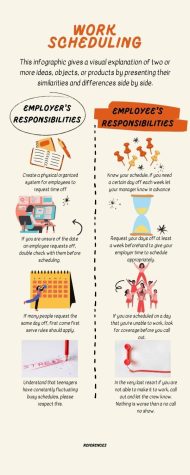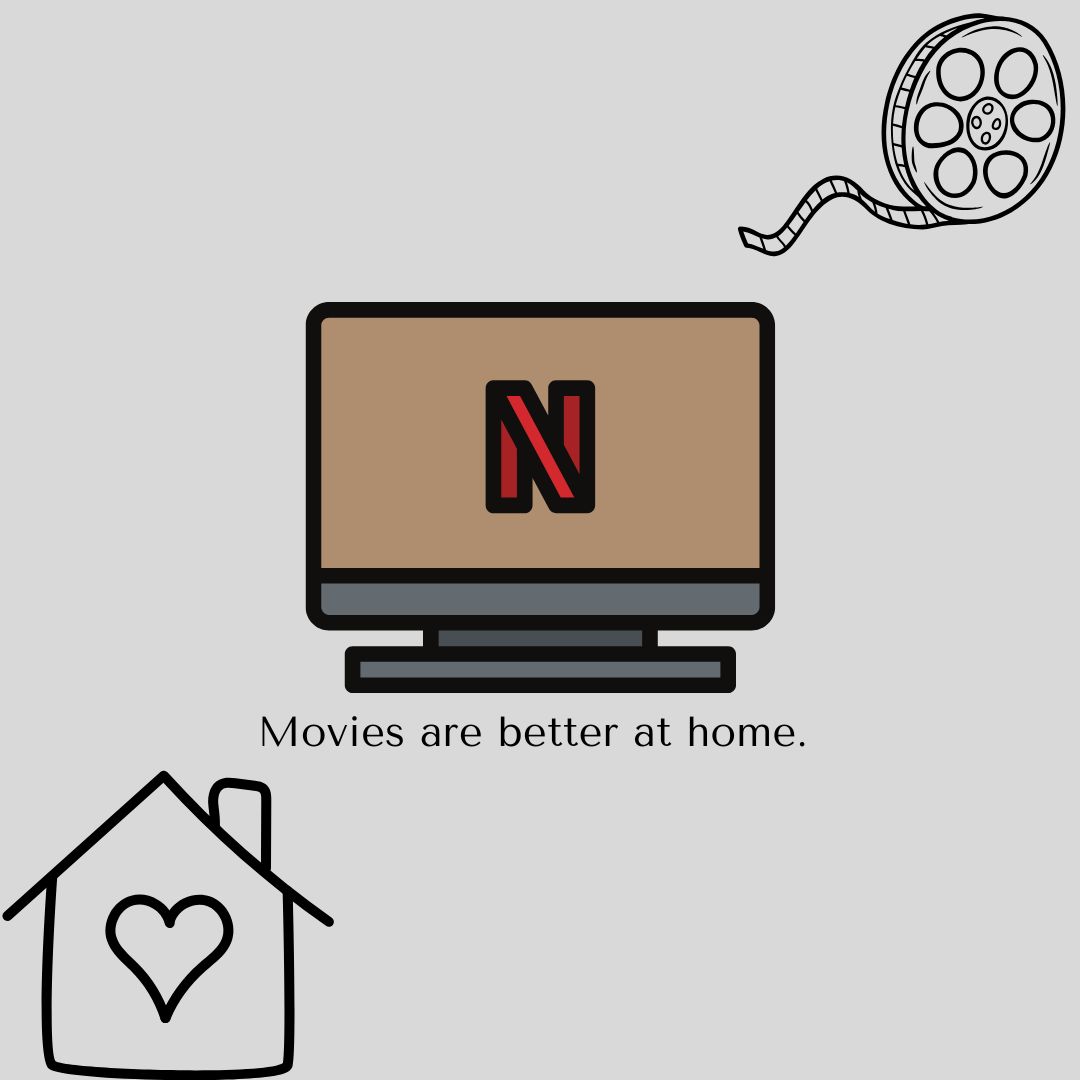Teenagers are oftentimes viewed as lazy and uncommitted when in reality, we are simply tired.
We have to balance six hours of school five days a week, plus sports, clubs, family, friends, and work.
It’s exhausting.
There are days where it feels as though there’s not even time to stop and breathe, let alone pick up a shift at work. The stress can be unbearable trying to maintain a work-life balance.
Stress piles up and only worsens when your work schedule is out of order. It is necessary to set specific boundaries around scheduling so both the employer and employee are on the same page.
Scheduling: Employer’s responsibilities
Employers should have a system dedicated to their employees’ availability where they can write down what days they are available to work. It is important to have a consistent scheduling system so both employees and employers can know who is supposed to be where and when, but when that system is corrupt, only chaos occurs.
While some businesses have systems like this, many do not, which leaves employees to verbally tell their higher ups when they are unavailable. Unfortunately, if that manager forgets before making the schedule, the employee would be the one getting in trouble if they called out. Despite the employee doing their part in letting management know they were not available to work that day. And while it is not management’s responsibility to ask every employee about their availability, having it written down will help comply with their requests as well as possibly preclude call-outs.
Employers who hire teenagers should understand that because we are in high school many employees will have prior commitments that will likely interfere with scheduling after school. It is important for the employer to have a good idea of what their employees’ extra curricular schedule looks like, as to have a more sufficiently organized timetable of when this worker can and can’t work.
Scheduling: Employee’s responsibilities
Dates requested off should be done so properly and abide by the employers guidelines for requesting time off. It is the employees responsibility to give their employer an adequate amount of time to comply with the request. Once they have done so, their requests should be respected and the employee should not be scheduled because they took the time to ask for the day off, instead of calling out of a shift at the last minute.
Understand that your employer may not be able to take you off the schedule every time you request a day off. It is possible that multiple people requested the same day off and not everyone can have that shift off because then the store would not be able to operate.

It is necessary as an employee to request off the days you know you are unavailable because if you end up getting scheduled on a day you’re not available to work, and you haven’t let management know, you are the one at fault. And if you’re unable to find coverage, you would have to call out which is unfair to the rest of the shift workers and may cause trouble with management.
Calling out of a shift
Calling out of a shift should not be done if the employee knows prior to when the schedule comes out that they are unavailable to work. And if the employee gets scheduled on a day they forgot to request off, it is their responsibility to find somebody to take their shift. When workers call out without coverage it leaves the rest of the crew shorthanded and makes the other employees have to work even harder. Without an extra pair of hands, those working are left struggling to complete their tasks and have left over work to do after closing due to understaffing
Calling out should be used as a last resort when there is a family emergency or the employee is sick, not when you want to go to the beach with your friends. If an employee calls out once every week it is almost unbelievable that they could be experiencing so many emergencies, and more often than not will turn out to be somebody abusing their call out privileges.
So don’t be a jerk, if you can’t work try to let someone know in advance before you become that co-worker.
If these methods are implemented into every workplace, scheduling will become easier and much more organized. Both the employee and employer will benefit from this organization and there will be less chaos and more work being done.














